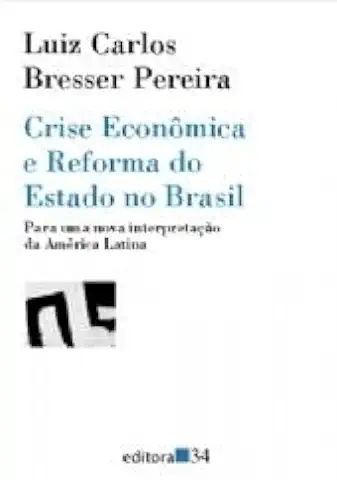
Economic Crisis and State Reform in Brazil - Luiz Carlos Bresser Pereira
Economic Crisis and State Reform in Brazil: A Comprehensive Analysis
Introduction
In his groundbreaking book, "Economic Crisis and State Reform in Brazil," renowned economist Luiz Carlos Bresser Pereira delves into the intricate relationship between economic crises and state reform in Brazil. With meticulous research and insightful analysis, Pereira presents a compelling narrative that sheds light on the country's economic challenges and proposes a comprehensive roadmap for state reform. This book is a must-read for anyone seeking a deeper understanding of Brazil's economic trajectory and the urgent need for transformative change.
Understanding Brazil's Economic Crises
Pereira begins by providing a comprehensive overview of Brazil's economic history, highlighting the recurring pattern of economic crises that have plagued the nation. He meticulously examines the underlying causes of these crises, including structural imbalances, policy failures, and external shocks. By dissecting these factors, Pereira lays the foundation for understanding the complex dynamics that have shaped Brazil's economic landscape.
The Imperative for State Reform
Recognizing that economic crises are not merely isolated events, Pereira emphasizes the crucial role of state reform in addressing these challenges. He argues that Brazil's state apparatus is in dire need of modernization and transformation to effectively respond to the demands of a rapidly changing global economy. Pereira meticulously analyzes the shortcomings of the current state structure, identifying areas such as bureaucracy, corruption, and inefficient public spending as major obstacles to economic growth and development.
A Comprehensive Blueprint for State Reform
The heart of Pereira's book lies in his comprehensive blueprint for state reform. He meticulously outlines a series of bold and innovative proposals aimed at modernizing the state apparatus, enhancing its efficiency, and fostering a more conducive environment for economic growth. These proposals encompass a wide range of areas, including fiscal discipline, public administration reform, social security reform, and the promotion of a more competitive business environment.
The Path to Sustainable Economic Growth
Pereira concludes his book by emphasizing the urgency of implementing these state reforms to break the cycle of economic crises and pave the way for sustainable economic growth. He argues that Brazil has the potential to become a global economic powerhouse, but only if it can overcome the structural challenges that have hindered its progress. By embracing state reform, Brazil can unlock its full potential and secure a prosperous future for its citizens.
Conclusion
"Economic Crisis and State Reform in Brazil" is a seminal work that provides a deep understanding of Brazil's economic challenges and offers a comprehensive roadmap for state reform. Pereira's insightful analysis and bold proposals make this book an essential resource for policymakers, economists, and anyone interested in Brazil's economic future. By addressing the urgent need for state reform, Brazil can overcome its economic crises and embark on a path of sustainable growth and prosperity.
Enjoyed the summary? Discover all the details and take your reading to the next level — [click here to view the book on Amazon!]